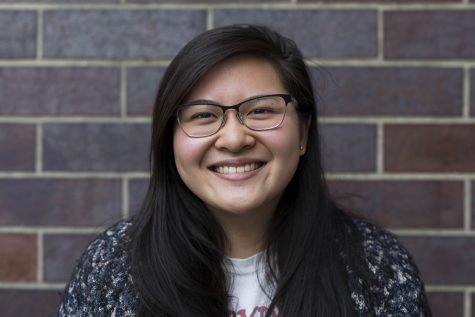Dissatisfied, Voters Try a Third Party
Last night, as Donald Trump emerged as the victor in a long presidential contest, a number of people around the country were left feeling dissatisfied with the state of American politics. Granted, these voters might not have been happy if Hillary Clinton won either — their views went unrepresented in either candidate, which is why they chose to vote third party. A number of NYU students, feeling disillusioned by either what they saw as ineffectual policy or simply by the candidates themselves, turned instead to voting for third party candidates like Libertarian Party candidate Gary Johnson, Green Party candidate Jill Stein and Socialist Equality Party candidate Jerry White.
LS freshman Doug Braff is one such voter. Braff felt that the candidates nominated by the two major parties didn’t adequately represent him. Originally, he had a different candidate in mind.
“I had originally been a Rand Paul supporter, but once he dropped out of the race, there weren’t anymore candidates running for the major parties’ nominations that really spoke anything close to my views,” Braff said.
Trevor Hill, a CAS sophomore, said he preferred Bernie Sanders, saying that he couldn’t support someone whose main priority wasn’t combating climate change. Initially, he found the prospect of a Clinton candidacy palatable, but his mood changed over time.
“Throughout the contest, I found the idea of a Clinton presidency more and more disturbing, particularly when the question of her ties to Wall Street and her paid speeches came up,” Hill said.
He said that ultimately hearing Clinton refer to oil obtained from fracking as a “transition fuel” was what changed his vote to Green Party candidate Jill Stein in the end.
Ideological disagreements with the major party candidates also played a role for people who opted for a third party vote. Isaac Oseas, a member of International Youth and Students for Social Equality who attends the Graduate School of Arts and Science, said that most of his concerns were policy based.
“I am voting for the Socialist Equality Party’s candidates based on the party’s historical understanding of current political crisis — including the massive social inequality, police brutality and the war drive — that stems from an unwillingness and inability of the Democrats and Republicans to resolve the long-developing crisis of the capitalist system,” Oseas said.
While no candidate is perfect, these students felt that the benefits of voting for third party candidates outweighed the risks.
“Stein is only candidate who was challenging our economic norms and providing an alternative to the economic policies of Trump, Clinton and Johnson, who have a virtual consensus on this issue,” Hill said.
Braff, meanwhile, said that Johnson’s humility in interviews and desire to be honest when faced with what he characterized as “gotcha questions” should be character strengths emblematic of any leader.
Oseas felt that genuine desire for public service was lost among the major parties. “When I look at the program of the SEP, what I see corresponds to the needs of the masses of the population, even if right now most people have never heard of it,” he said.
Being a student at a politically active campus like NYU did in some ways inform how these students voted. For Oseas, campus discussions about politics regarding poverty, race and class issues spoke to a desire for better solutions presented by candidates.
“Jerry White’s insistence that, at root, issues like poverty and police violence can only be addressed by unifying the working class in a struggle for social equality would have been a welcome antidote [to] the widespread confusion that exists on campus,” he said.
Hill, on the other hand, said that Green Party voters were generally negatively received at NYU, but conversations he had on campus at the end of the primary still helped to solidify his decision. Meanwhile, Braff said that he tended to stay away from actively bringing up his vote for Johnson in class to avoid getting into claims of him implicitly electing Trump, which he found annoying.
What all three students agreed upon, however, was that there was a need for third parties to be more involved in the American political system. Oseas said that both major parties are unable to provide mass appeal to the widespread anger at the political system that Americans have felt over the last few years.
Braff and Hill said that the Libertarian and Green parties, respectively, should focus on expanding their influence in the American political sphere, whether that be through capitalizing on increased momentum from the presidential race or critiquing the inequities of the current American system.
A version of this article appeared in the WSN 2016 Election Issue. Email Emily Fong at [email protected].

Emily Fong is the Opinion Editor for the Washington Square News. She is a sophomore at the Gallatin School of Individualized Study, enjoys tea, and prefers...

























































































































































